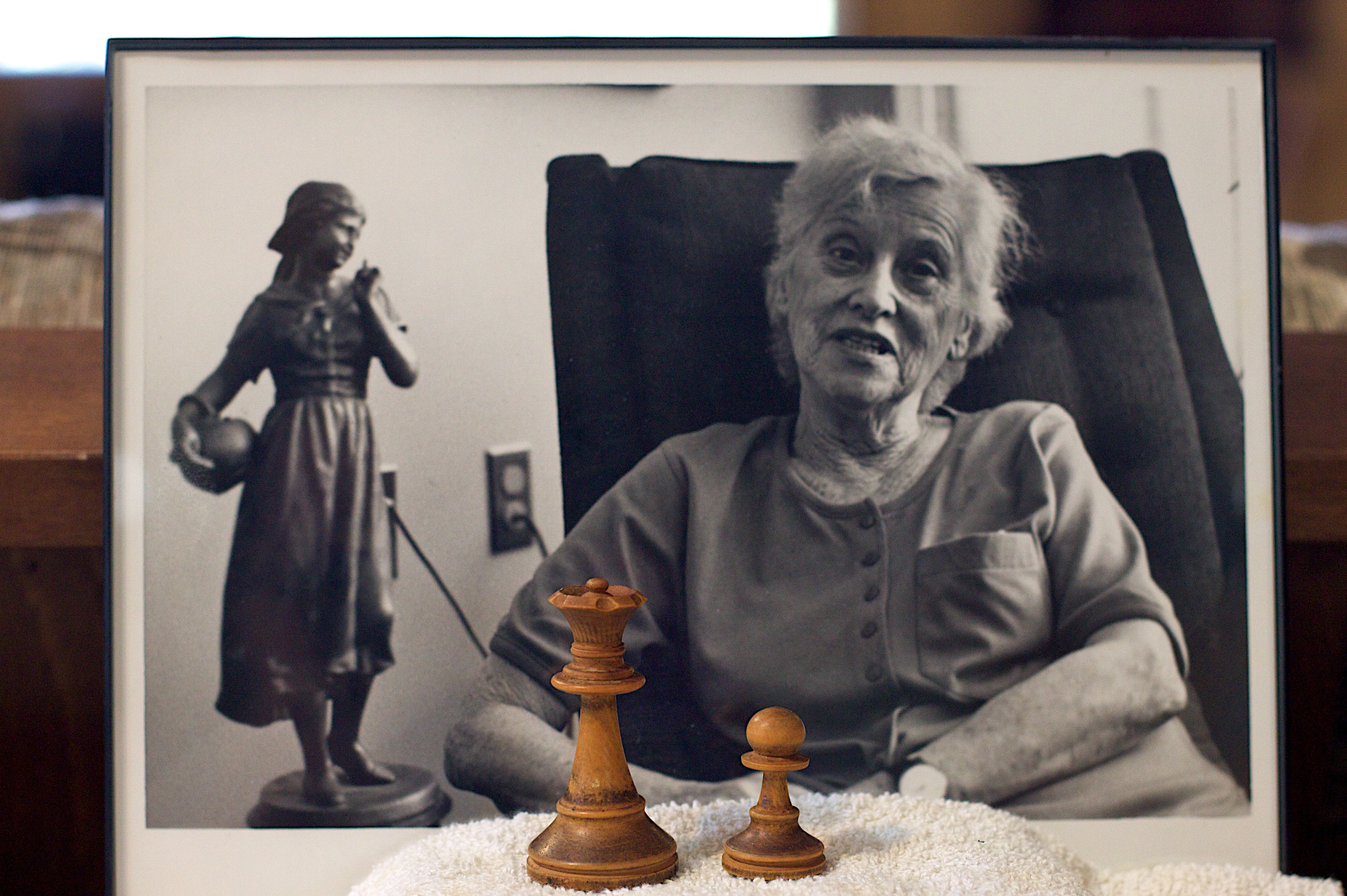This past October I finally got to meet (in person) Bo Sanders and Tripp Fuller of Homebrewed Christianity. They are great guys and if you do not subscribe to their podcast, well, you are missing out on something amazing. They’ve interviewed too many names to list them all here, but lets throw down a couple: NT Wright, John Caputo, Peter Rollins, Brian McLaren, and Roger Olson. By listening to the podcast and having some convos with Bo, I’ve learned that Process Theology is all the rage these days. In fact, it will be a major topic at this year’s Emergent Village Theological Conversation, January 31-February 2, in Claremont, California. I personally do not hold to process theology at this time, but have been outspoken about my view of Open Theism. These two views are similar in many ways, but are also different. I think the two are certainly good conversation partners, which is why I’m excited to have this article from Tripp (with Bo).

Your Grandma Is a Process Theologian!
Ok, maybe yours wasn’t but mine was and she didn’t know it. My Nana was a real deal Saint. Her life was prayer filled and full. She strove to live moment to moment in the awareness of God, to listen and respond faithfully to God’s call, to join God in other’s pain and struggle, and be ever ready to give testimony to God’s loving presence – even in the midst of suffering. She may not have read the philosopher Whitehead or Marjorie Suchocki’s amazing book on prayer but she was a Process Theologian and I imagine the the church’s faithful are full of ‘anonymous Process Theologians.’ Living theological legend John Cobb once said that:
Process theology affirms that at the deepest reality of the world is a vastly complex network interrelated events. Even God is affected by what happens, just as God participates in the constitution of every creaturely event.
A Process vision of the world sees relationships as primary and it is in these relationships that God’s divine initiative and the world’s creaturely response takes place. Prayerful people like my Nana intuited this even though many theological greats from Church history would have seen her theological intuitions as naive.
“Prayer Changes Me.” I have heard many sermons on how the point of prayer isn’t to change God or what happens in the world but to change yourself. Implied in this rather depressing sermon is the image of an unchanging and unaffected deity. The point of prayer is then to resign oneself to the will of God which is being equated to whatever happens in history… even the really nasty stuff. The pastor will probably quote Jesus in the Garden saying ‘not my will but thy will be done’ and then use the horror that is the cross and God’s redemptive work through it in order to justify whatever injustice, pain, or suffering one is facing is, in fact, the good will of God.
The problem isn’t what is happening in the world but how one experiences it. That is depressing to think about and an image of God not fit for one revealed in Christ. What if, as my Nana taught me, the prayer of Jesus was not a prayer of personal resignation to God’s will… but was instead a prayer for understanding the will of God and the strength and courage to will to join in God’s work – even when it is costly and difficult?
God Changes
Many Christian theologians have wanted to deny that God actually changes but Process theologians, including my Grand Mother, say it loudly and proudly. God’s immutability (complete lack of change) was even one of the essential divine attributes, part of how God is qualitatively different than the finite world. There are a number of reasons this divine ideal came into Christian thought but none of them was the testimony of scripture. Nana’s summary of scripture to me was “God knows, God cares, and God acts because God is Love.”
For many Greek philosophers being unchanged, like the unmoving planets & stars in the sky (lol), was the ideal. God being more perfect than the heavenly lights was described as the unmoved mover. Perhaps an unchanging God and the desire for stoic living is an ideal but I don’t think it is a genuinely Christian one. In the Bible God is seen to be active, involved, and invested in the world as well as the people of Israel, and even the lives and struggles of individuals. The gospels report that when Jesus saw people in need he had compassion on them and was then moved to act. For many praying Christians the expectation of intercessory prayer is that it does something. Why then would Christian theologians insist that prayer cannot change God or the world? They wanted God to be perfect.
One reason they thought a changing God would imply imperfection is that a change must necessarily be for the good or not. So if God changed then God would either change ‘good’, revealing that previously God was not perfectly good, OR change for the worse which would reveal that God is less than ‘good’. But should one not see reality primarily as static but necessarily moving, then divine perfection would be affirmed because of the nature and character of God in the movement. There is something inherently risky in loving and there is something moving when you understand and respond to someone.
If loving each other requires change in us then it seems reasonable that the God who is love is always being moved by the reality of God’s beloved. It is in this relational vision of God and the world that a Process thinker can imagine intercessory prayer changing things. When time is not an illusion* but the on-going interaction of God and the world then our participation, actions, involvement and lack there of have consequences. Just think of Jesus visit to his home town in Mark 6:4-6 where the people’s lack of faith inhibited Jesus from healing all that he desired.
Love requires real relationships which include the 3 risks of:
- duration
- freedom
- and openness.
God is not perfect by being beyond these risks – but in them. As participants in this open and relational world, we can join God at every moment of the duration of our life. Regardless of what happened before, if we used our freedom for good (or ill) we are again given the grace of the divine presence and lure. This lived openness is then the matrix of God’s perfect love.
If you have any questions for Bo and Tripp, they’ll be on-hand today to address some of them! Consider this a “101” for Process Theism. I just ask that you be courteous 🙂 ———————————————————————————————————————————
* [A popular theological move to preserve divine perfection was to assert that time is not real for God. Sure we experience it as a real sequence of events with causes, effects, and possibilities but in actuality the story has already been written, completed, and was settled by God before we ever make our first appearance in the story. There is a problem with saying that time is not real for God…if it’s not real for God then time is simply an illusion. Beyond that it seems to me that the scriptures testify to a God that works in and through history, for and with the world. Divine perfection then must be timely – an ever-present and incarnational activity in which God is lovingly present to all the world and every context, inviting, luring, calling, and empowering the world toward the Good. Then, regardless of what happens, perfect divine love is faithful and greets the next moment with the same possibility.]
Tripp Fuller and Bo Sanders are two of the brewers at Homebrewed Christianity and will be helping to host this year’s Emergent Village Theological Conversation in Claremont, Ca from January 31-February 2. You can sign up at ProcessTheology.org
Resources:
- Tripp Fuller and Bo Sanders: Is God Really Omnipotent? (Rachel Held Evans)
- Marjorie Suchocki’s short PDF intro (free)
- Process Theology: A Guide for the Perplexed, Bruce Epperly
- Searching for an Adequate God: A Dialogue between Process and Free Will Theists, John Cobb and Clark Pinnock
- The Binding of God – Genesis 22 as a Test Case for Open Theism in the Old Testament (Me)
- A Brief Outline and Defense of the Open View, Greg Boyd











